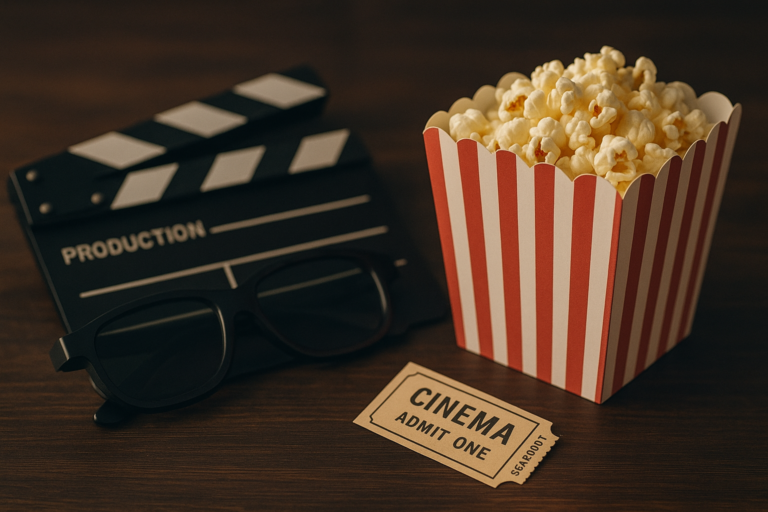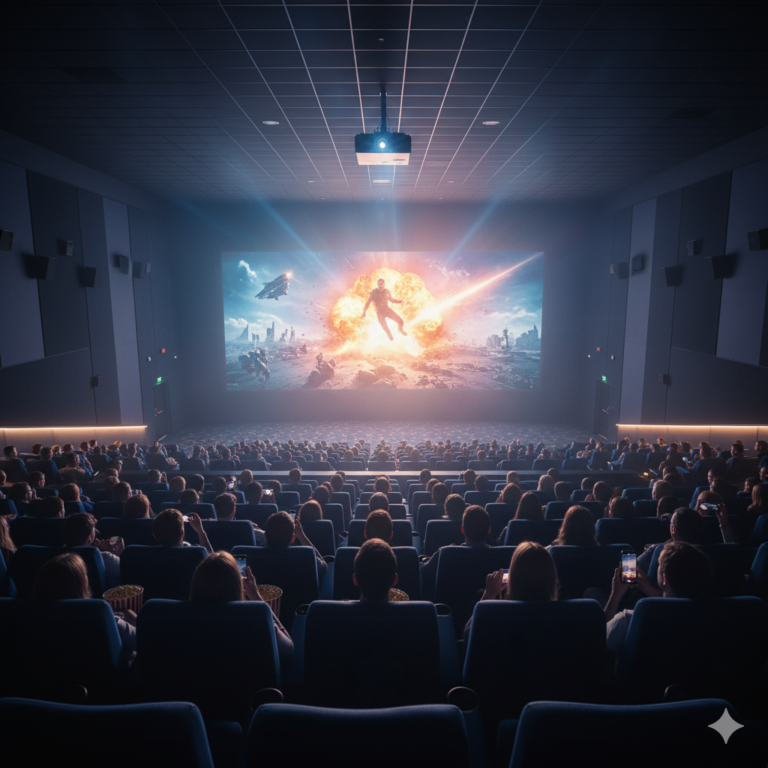The question of how documentaries can drive social change has captivated filmmakers, activists, and audiences for over a century, ever since the earliest nonfiction films demonstrated their capacity to shift public opinion and spark movements. Unlike fictional narratives that entertain through escapism, documentaries possess a unique power to confront viewers with uncomfortable realities, human stories, and systemic injustices that demand attention. From exposing corporate malfeasance to humanizing marginalized communities, documentary films have repeatedly proven themselves as catalysts for legislation, policy reform, and grassroots mobilization across the globe. This topic matters because we live in an era of information overload, where attention is the scarcest resource and meaningful engagement with complex issues has become increasingly difficult. Documentaries cut through the noise by combining rigorous journalism with cinematic storytelling, creating emotional connections that statistics and news reports often fail to achieve.
The problems they address range from environmental destruction and political corruption to healthcare inequities and human rights violations. When a documentary succeeds, it does more than inform””it transforms passive viewers into engaged citizens who feel compelled to act. By the end of this article, readers will understand the specific mechanisms through which documentaries influence public discourse, the historical precedents that demonstrate their effectiveness, and the practical considerations that separate impactful films from well-intentioned failures. The analysis covers everything from distribution strategies and audience psychology to the ethical responsibilities filmmakers bear when representing real-world subjects and communities. Whether you are a filmmaker seeking to maximize your project’s social impact, a viewer wanting to engage more critically with nonfiction cinema, or simply curious about the intersection of art and activism, this exploration offers concrete insights into one of cinema’s most consequential functions.
Table of Contents
- What Makes Documentary Films Effective Tools for Driving Social Change?
- Historical Examples of Documentaries Creating Measurable Social Impact
- The Psychology of Persuasion in Documentary Filmmaking
- Distribution Strategies That Maximize Documentary Social Impact
- Ethical Challenges and Criticisms of Advocacy Documentary
- The Future of Documentary Activism in the Streaming Era
- How to Prepare
- How to Apply This
- Expert Tips
- Conclusion
- Frequently Asked Questions
What Makes Documentary Films Effective Tools for Driving Social Change?
Documentary films succeed as agents of social change through a combination of emotional resonance, factual credibility, and narrative accessibility that other media formats struggle to replicate. The human brain processes visual stories differently than written text or verbal arguments””neurological research indicates that narrative engagement activates mirror neurons and releases oxytocin, creating empathy responses that raw data cannot trigger. When viewers watch a family struggle with medical debt or witness the consequences of industrial pollution on a specific community, they form emotional bonds with subjects that transcend abstract policy debates. This psychological mechanism explains why documentaries frequently succeed where white papers and academic studies fail to move public opinion.
Credibility functions as the second pillar of documentary effectiveness. Unlike obviously fictional entertainment, documentaries carry an implicit promise of truthfulness that grants them authority in public discourse. This credibility compounds when films include expert testimony, verifiable evidence, and transparent methodology. The most effective social change documentaries balance emotional storytelling with rigorous fact-checking, understanding that their arguments will face scrutiny from opponents and skeptics. Films that sacrifice accuracy for dramatic impact often undermine their own causes when fact-checkers expose exaggerations or misleading editing choices.
- **Emotional identification**: Viewers connect with individual human stories more powerfully than aggregate statistics, making personal narratives essential for inspiring action
- **Visual evidence**: Documentary footage provides proof that written accounts cannot match, showing rather than telling audiences about conditions they might otherwise dismiss or disbelieve
- **Accessibility**: Compared to academic research or legislative testimony, documentaries reach broader audiences through theatrical distribution, streaming platforms, and educational screenings
- **Permanence**: Unlike news coverage that disappears within the daily cycle, documentaries remain available for years, accumulating viewership and influence over time
- **Community building**: Screenings create shared experiences that bring together like-minded individuals, forming the foundation for organized collective action

Historical Examples of Documentaries Creating Measurable Social Impact
The historical record provides numerous cases where documentary films directly contributed to legislative action, corporate accountability, and shifts in public consciousness. “The Thin Blue Line” (1988) by Errol Morris not only revolutionized documentary filmmaking through its innovative reenactments and investigative approach but also led directly to the exoneration of Randall Dale Adams, a man wrongfully convicted of murder. The film exposed prosecutorial misconduct and witness perjury so convincingly that the Texas Court of Criminal Appeals overturned the conviction, demonstrating that documentaries can achieve judicial outcomes that years of traditional legal appeals failed to produce.
Environmental documentaries have generated particularly measurable impacts. “An Inconvenient Truth” (2006) transformed climate change from a scientific concern into a mainstream political issue, contributing to Al Gore winning the Nobel Peace Prize and inspiring millions of viewers to reduce their carbon footprints. Research published in peer-reviewed journals found that the film significantly increased viewers’ concern about global warming and their willingness to take personal action. Similarly, “Blackfish” (2013) devastated SeaWorld’s business model by exposing the mistreatment of captive orcas””the company’s stock dropped by 50 percent in the years following the film’s release, attendance plummeted, and multiple states introduced legislation banning orca captivity.
- **”Super Size Me” (2004)**: Within six weeks of the film’s premiere, McDonald’s eliminated its Supersize option from menus nationwide, though the company denied any connection to the documentary
- **”The Cove” (2009)**: This Academy Award winner brought international attention to dolphin hunting in Taiji, Japan, leading to diplomatic pressure and reduced dolphin meat consumption domestically
- **”13th” (2016)**: Ava DuVernay’s examination of mass incarceration became required viewing in schools and legislatures, directly influencing criminal justice reform discussions
- **”Gasland” (2010)**: The iconic image of flammable tap water galvanized opposition to hydraulic fracturing, contributing to fracking bans in multiple states and countries
The Psychology of Persuasion in Documentary Filmmaking
Understanding how documentaries change minds requires examining the psychological principles that govern attitude formation and behavioral change. The elaboration likelihood model, a foundational theory in persuasion research, suggests that lasting attitude change occurs through central route processing””deep engagement with arguments and evidence””rather than peripheral cues like speaker attractiveness or production values. Effective documentaries facilitate central processing by presenting clear arguments supported by credible evidence while maintaining sufficient entertainment value to prevent viewer disengagement. The challenge lies in achieving this balance without simplifying complex issues to the point of distortion. Identification with documentary subjects represents perhaps the most powerful psychological lever available to filmmakers. When audiences perceive characters as similar to themselves or their loved ones, defensive psychological barriers diminish.
This explains why many successful social change documentaries focus on individual stories rather than systemic analyses””viewers who might resist arguments about abstract policy questions often find themselves moved by specific human experiences. The phenomenon operates even across significant demographic differences when filmmakers establish universal human connections around family, health, fairness, or dignity. Resistance to persuasion presents significant obstacles that documentary filmmakers must navigate carefully. Psychological reactance theory predicts that audiences who feel manipulated or pressured will reject messages regardless of their merit. Heavy-handed rhetoric, obvious emotional manipulation, or perceived bias triggers defensive responses that close minds rather than opening them. The most persuasive documentaries often succeed by presenting information that allows viewers to reach conclusions independently, creating the sense that attitudes shifted through personal reflection rather than external influence. This approach requires filmmakers to trust their evidence and resist the temptation to tell audiences explicitly what to think.
- **Narrative transportation**: Viewers absorbed in stories temporarily suspend counterarguing, making them more receptive to embedded messages
- **Social proof**: Documentaries that show others taking action inspire imitation by demonstrating that change is possible and socially acceptable
- **Confirmation and challenge**: Effective films validate some existing beliefs while challenging others, avoiding complete rejection by hostile audiences

Distribution Strategies That Maximize Documentary Social Impact
Creating a powerful documentary represents only half the battle””without strategic distribution, even the most compelling films fail to reach audiences capable of driving change. Traditional theatrical releases generate prestige and media attention but reach relatively small audiences. Streaming platforms offer massive potential viewership but struggle to create the communal experiences and focused attention that inspire collective action. The most impactful documentaries employ hybrid distribution strategies that combine multiple channels, each serving different purposes in the broader campaign for change.
Impact campaigns have emerged as essential complements to documentary distribution. These coordinated efforts extend beyond passive viewership to include educational screenings, discussion guides, partnership with advocacy organizations, and direct engagement with policymakers. “Food, Inc.” (2008) exemplifies this approach””the filmmakers partnered with dozens of food justice organizations, created curriculum materials for schools, organized screenings in communities affected by industrial agriculture, and lobbied legislators directly. The film’s impact extended far beyond its box office performance because the distribution strategy treated the documentary as a tool within a broader movement rather than an end in itself.
- **Festival premieres**: Launching at major festivals like Sundance, Toronto, or Tribeca generates critical attention and positions films for wider distribution deals
- **Community screenings**: Grassroots distribution through churches, schools, unions, and advocacy organizations reaches audiences predisposed to action and creates local discussion networks
- **Streaming accessibility**: Making films freely available after initial release periods maximizes long-term viewership and educational use
- **Legislative screenings**: Targeted showings for lawmakers and their staffs can influence policy debates directly, particularly when combined with expert testimony
- **Social media integration**: Clip sharing and discussion across platforms extends reach beyond those who watch complete films
Ethical Challenges and Criticisms of Advocacy Documentary
Documentary filmmakers pursuing social change face ethical dilemmas that fictional storytellers largely avoid. The tension between advocacy and objectivity generates ongoing debate within the profession. Critics argue that documentaries marketed as truthful but designed to advocate specific positions constitute propaganda regardless of the worthiness of their causes. Defenders counter that all filmmaking involves editorial choices and that transparency about perspective matters more than impossible standards of neutrality. This debate intensifies when documentaries demonstrably distort facts or manipulate footage to strengthen arguments””practices that undermine the credibility essential to documentary effectiveness.
Representation ethics pose additional challenges, particularly when privileged filmmakers document marginalized communities. Questions of consent, exploitation, and who benefits from telling whose story have no easy answers. Subjects who appear in documentaries may face retaliation, unwanted attention, or misrepresentation of their views through selective editing. The power imbalance between filmmaker and subject means that informed consent remains difficult to ensure, especially when participants cannot preview final cuts or predict distribution reach. Ethical filmmakers increasingly involve subjects in production decisions and share proceeds, but these practices remain far from universal.
- **Accuracy obligations**: Filmmakers bear responsibility for fact-checking and avoiding misleading editing that misrepresents events or statements
- **Subject welfare**: Documentary subjects may suffer consequences that filmmakers fail to anticipate or prevent
- **Audience manipulation**: Heavy-handed emotional appeals can feel coercive and undermine trust in the genre
- **Complexity reduction**: Advocating for specific positions often requires simplifying nuanced issues, potentially generating policies with unintended consequences
- **Preaching to the converted**: Many advocacy documentaries reach only audiences who already agree, limiting actual impact on public opinion

The Future of Documentary Activism in the Streaming Era
Streaming platforms have fundamentally altered documentary distribution, creating both opportunities and challenges for filmmakers seeking social impact. Netflix, Amazon, and specialized platforms like MUBI and Criterion Channel have made documentaries accessible to global audiences that theatrical distribution could never reach. The streaming boom has also increased production funding, with platforms commissioning original documentaries to attract and retain subscribers. However, the abundance of content creates discovery challenges””films that might have dominated cultural conversation for months now compete with thousands of alternatives for viewer attention.
Interactive and immersive documentary formats represent emerging frontiers for social change filmmaking. Virtual reality documentaries can transport viewers into environments and perspectives otherwise inaccessible, potentially generating even stronger empathy responses than traditional films. Interactive documentaries allow audiences to explore issues at their own pace and depth, personalizing engagement in ways linear narratives cannot. These technologies remain niche but may eventually transform how documentaries function as tools for persuasion and mobilization.
How to Prepare
- **Research existing coverage thoroughly**: Investigate what documentaries, journalism, and academic work already exists on your subject. Understanding the existing landscape prevents redundancy and identifies gaps your project can fill. This research also reveals what approaches have succeeded or failed previously, providing valuable lessons for strategy development.
- **Identify specific, achievable goals**: Vague aspirations toward “raising awareness” rarely translate into measurable impact. Define concrete outcomes your documentary should contribute to””specific legislation, corporate policy changes, or shifts in public behavior. These goals should be ambitious but realistic given your resources and distribution potential.
- **Map the stakeholder landscape**: Understand who holds power over your issue, who opposes change, and who might be persuaded. Effective documentaries target persuadable audiences rather than preaching to the converted or wasting resources on implacable opposition. This mapping informs both content decisions and distribution strategy.
- **Build partnerships early**: Contact advocacy organizations, academic experts, and affected communities before production begins. These relationships provide access, credibility, and distribution channels while ensuring your documentary serves rather than exploits the communities it represents.
- **Plan impact campaign simultaneously with production**: Distribution and outreach strategy should develop alongside the film itself, not as an afterthought. This parallel planning allows production choices that support impact goals and ensures resources remain available for post-release activities.
How to Apply This
- **Verify claims independently**: Before sharing or acting on documentary information, check key claims against reputable sources. Even well-intentioned films contain errors or exaggerations that spread through uncritical sharing.
- **Connect with relevant organizations**: Most impactful documentaries partner with advocacy groups that provide pathways from passive viewing to active engagement. Seek out these organizations and explore volunteer, donation, or advocacy opportunities.
- **Organize community screenings**: Share documentaries with friends, family, colleagues, and community groups. Post-screening discussions deepen engagement and build local networks of concerned individuals who can pursue collective action.
- **Contact decision-makers**: When documentaries reveal policy failures or corporate misconduct, communicate with elected officials and company leadership. Individual contacts accumulate into pressure that institutions cannot ignore, particularly when messages reference specific documentary evidence.
Expert Tips
- **Focus on character before issue**: Audiences connect with people, not problems. Introduce compelling human subjects before explaining the systemic issues affecting their lives. This narrative structure builds emotional investment that sustains attention through complex explanatory content.
- **Show opposition fairly**: Presenting only sympathetic perspectives weakens persuasive power by allowing opponents to dismiss documentaries as one-sided. Including articulate representatives of opposing views, then addressing their arguments substantively, demonstrates confidence and builds credibility with skeptical viewers.
- **Design for shareability**: Specific moments””striking images, quotable statements, surprising revelations””drive social media sharing that extends reach beyond initial viewership. Build these shareable moments deliberately without sacrificing overall narrative coherence.
- **Create multiple entry points**: Not everyone will watch your complete documentary. Produce companion content””short clips, infographics, discussion guides””that communicates key messages to audiences with varying attention levels.
- **Measure impact systematically**: Establish metrics before release and track them consistently. Viewership numbers matter less than evidence of attitude change, policy influence, or behavioral shifts. This measurement allows strategy adjustment and provides evidence of effectiveness for funders and partners.
Conclusion
Documentary films have demonstrated remarkable capacity to drive social change across issues ranging from environmental protection and criminal justice reform to corporate accountability and public health. Their effectiveness stems from a unique combination of emotional storytelling, factual credibility, and accessibility that other media formats struggle to match. The historical record includes numerous cases where documentaries directly contributed to legislation, judicial outcomes, and shifts in public consciousness””tangible impacts that justify the genre’s reputation as a powerful tool for activism. The future of documentary social change depends on filmmakers, distributors, and audiences all fulfilling their respective responsibilities.
Filmmakers must maintain ethical standards and factual accuracy while crafting narratives powerful enough to cut through information overload. Distributors must develop strategies that reach beyond self-selected audiences to engage persuadable viewers. Audiences must watch critically, verify claims, and translate emotional responses into sustained action rather than passive sympathy. When these elements align, documentaries will continue serving as catalysts for the informed public engagement that democratic societies require.
Frequently Asked Questions
How long does it typically take to see results?
Results vary depending on individual circumstances, but most people begin to see meaningful progress within 4-8 weeks of consistent effort.
Is this approach suitable for beginners?
Yes, this approach works well for beginners when implemented gradually. Starting with the fundamentals leads to better long-term results.
What are the most common mistakes to avoid?
The most common mistakes include rushing the process, skipping foundational steps, and failing to track progress.
How can I measure my progress effectively?
Set specific, measurable goals at the outset and track relevant metrics regularly. Keep a journal to document your journey.


